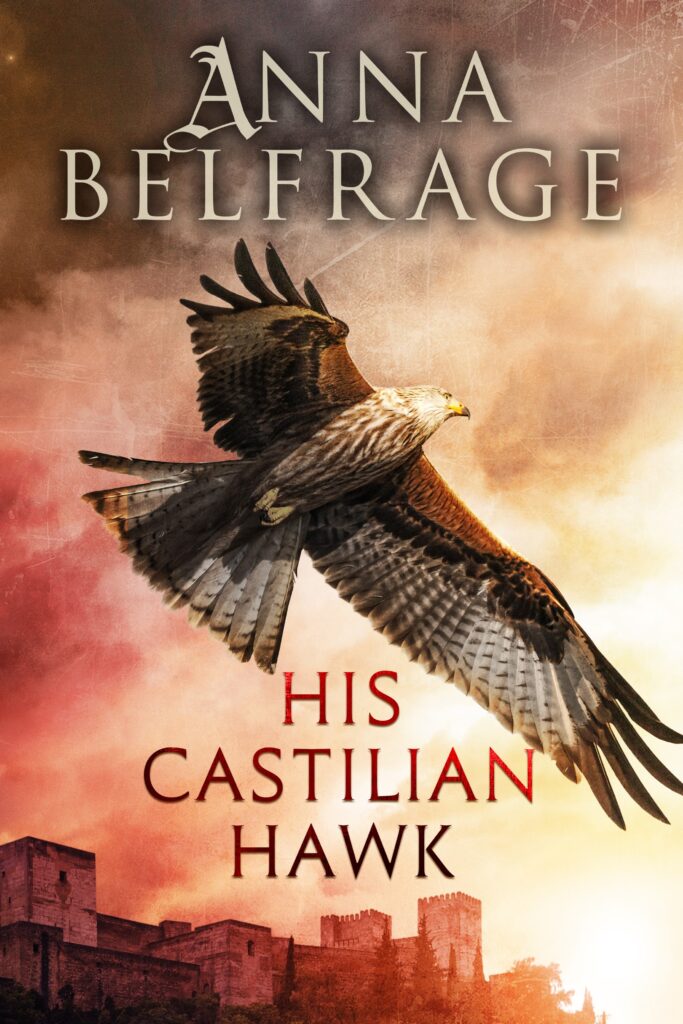 This week’s guest is Anna Belfrage, historical fiction writer extraordinaire. Had Anna been allowed to choose, she’d have become a time-traveller. As this was impossible, she became a financial professional with two absorbing interests: history and writing. Anna is the author of the acclaimed time travelling series The Graham Saga, set in 17th century Scotland and Maryland, as well as the equally acclaimed medieval series The King’s Greatest Enemy, which is set in 14th century England.
This week’s guest is Anna Belfrage, historical fiction writer extraordinaire. Had Anna been allowed to choose, she’d have become a time-traveller. As this was impossible, she became a financial professional with two absorbing interests: history and writing. Anna is the author of the acclaimed time travelling series The Graham Saga, set in 17th century Scotland and Maryland, as well as the equally acclaimed medieval series The King’s Greatest Enemy, which is set in 14th century England.
More recently, Anna has published The Wanderer, a fast-paced contemporary romantic suspense trilogy with paranormal and time-slip ingredients. While she loved stepping out of her comfort zone (and will likely do so again) she is delighted to be back in medieval times in her September 2020 release, His Castilian Hawk, set against the complications of Edward I’s invasion of Wales. It’s a story of loyalty, integrity—and love…
And we’ll both be contributing to an anthology of historical stories about betrayal due out in November.
Over to Anna!
The cursor blinks tauntingly.
“Come on, come on,” I mutter.
That never helps. Blink, blink, blink goes the cursor. Thrum, thrum, thrum go my fingers. After an hour or so of this futile exercise I give up. I have been afflicted by that most dreaded of conditions among authors: Writer’s Block. I don’t panic—after all, by now I’ve been around the block (ha-ha) a few times.
When I first set out to finally write that novel I’ve always wanted to pen, I lived in constant fear of forgetting my great ideas, of not being diligent enough in jotting them down before they disappeared and Ms Inspiration (my personal muse) turned mute. Ms Inspiration is a fickle being and rarely believes in nine-to-five. No, Ms Inspiration tends to be most active around two a.m., which led to a lot of disturbed sleep and illegible scrawled messages to self on the large pad I kept by my bed. Writer’s Block was not an issue. It was more of a Writer’s Deluge—which comes with its own challenges but is not the subject of this post.
Soon enough, though, Writer’s Block began to surface at regular intervals. Mostly, it was a case of a fertile mind with a huge strip of duct tape over its mouth, i.e. the brain continued to whisper stories, but something got lost in translation. It’s as if the words lined up along the edges of my subconscious, close enough that I could taste them, too far away for me to actually catch them. This type of block was frustrating. However, those times when my fertile mind went completely arid—not one single withered idea in any direction—was far, far worse. That type of block is terrifying, along the lines of “OMG, I have lost my mojo, and I bet it is permanent and I will never—never!—be able to weave words together into a story again!”.
This spring has been one long sequence of writer’s block. When I spoke to Alison about it, she referred to all of us being impacted by “background anxiety”—an excellent term which I have now stolen with pride. And yes, in this very strange year dominated by a pandemic, anxiety in one form or other has likely affected most of us. In some cases, the involuntary reclusive lifestyle may have led to extreme productivity. In my case, I have struggled with feeling that my writing is extremely irrelevant—hence the lack of words.
That sensation of irrelevance is hard to fight, Writer’s Block, in my experience, generally isn’t.
I have three strategies to combat my non-productivity:
When the block is a consequence of a drought in ideas, I find that the best thing to do is to take a total break. I draw a thick red line through two weeks of my calendar and write NO WRITING ALLOWED in capital letters above the line. The idea is to trick my brain into wanting to write because it is now forbidden to write. It works surprisingly well—probably not because of the less than subtle psychological approach, but rather because a lack of ideas flags a genuine need for a rest from creative endeavours.
When the block I am facing is one of “plenty of ideas, no words”, I choose between my other two strategies. One is to simply set all new writing aside and pull up one of the stories I have ripening away in my little WIP larder (Work In Progress larder) and submerge myself in editing. I love editing. I adore rewriting. As I expend my efforts on honing something I have already written, I often rediscover the words I need to capture the elusive storyline gestating in my brain.
My other alternative is the “soldier on” approach. This is when I do some serious talking to self before setting myself a daily word target.
“But I can’t!” self whines. (These conversations take place in my head. I do NOT go around talking to myself out loud.)
“Huh,” I tell self. “Of course you can!”
And I can. What I write under duress is rarely worth keeping, but the actual writing, however stilted, however lacking in esprit, helps stimulate my brain. Those mandatory 500 words a day help focus the plotline, and one day I’ll sit down to write the required 500 words and reappear from my creative bubble six hours later with 2 300 words. My Writer’s Block is history—at least for this time.
This time round, though, it has been harder than usual. This time, I’ve been obliged to combine my methods. But after weeks of no writing, followed by ‘edits only’ time and a couple of days of mandatory words, I am making progress—as evidenced, I believe, by this post. And by the fact that I am over 12,000 words into a new book. At last!
(And we’re all looking forward to reading it!)
Find out more about Anna and her excellent books
on her website: www.annabelfrage.com
Amazon page: http://Author.to/ABG
Facebook: https://www.facebook.com/annabelfrageauthor/
Twitter: https://twitter.com/abelfrageauthor @abelfrageauthor
A taste of what’s in store for us…
For bastard-born Robert FitzStephan, being given Eleanor d’Outremer in marriage is an honour. For Eleanor, this forced wedding is anything but a fairy tale.
Robert FitzStephan has served Edward Longshanks loyally since the age of twelve. Now he is riding with his king to once and for all bring Wales under English control.
Eleanor d’Outremer—Noor to family—lost her Castilian mother as a child and is left entirely alone when her father and brother are killed. When ordered to wed the unknown Robert FitzStephan, she has no choice but to comply.
Two strangers in a marriage bed is not easy. Things are further complicated by Noor’s blood-ties to the Welsh princes and by covetous Edith who has warmed Robert’s bed for years.
Robert’s new wife may be young and innocent, but he is soon to discover that not only is she spirited and proud, she is also brave. Because when Wales lies gasping and Edward I exacts terrible justice on the last prince and his children, Noor is determined to save at least one member of the House of Aberffraw from the English king.
Will years of ingrained service have Robert standing with his king or will he follow his heart and protect his wife, his beautiful and fierce Castilian hawk?
Wow! Now available for pre-order on Amazon UK Amazon US Out 28 September 2020
Alison Morton is the author of Roma Nova thrillers – INCEPTIO, PERFIDITAS, SUCCESSIO, AURELIA, INSURRECTIO and RETALIO. CARINA, a novella, and ROMA NOVA EXTRA, a collection of short stories, are now available. Audiobooks are available for four of the series. NEXUS, an Aurelia Mitela novella, is now out.
Find out more about Roma Nova, its origins, stories and heroines… Download ‘Welcome to Roma Nova’, a FREE eBook, as a thank you gift when you sign up to Alison’s monthly email newsletter. You’ll also be first to know about Roma Nova news and book progress before everybody else, and take part in giveaways.















Thank you for inviting me to visit and for giving me a label on the malaise that has afflicted so many of us these last few months!
A pleasure to host you, Anna. I think many of us have been experiencing this over the past few months and you have provided some good techniques to shake it off.
I agree, Anna, either writers have hammered out zillions of words during this ‘anxiety period’ or have seized up because of the ‘futility syndrome period’. I’m also in the latter – I’ve partially solved it by writing something completely different – the ‘un-normal period’ to balance the normal. Of course, the theory behind it might not work. Could still all be futile – definitely bloomin’ scary (the ‘what AM I doing?’ syndrome period! LOL
Have read your latest … a fantastic read!
Yes, a very peculiar period since March. I admit to writing blog posts, being fixed by social media, editing a quite different book, ‘research’, short stories and reading other people’s stuff. Last month, I started at last to pick up work on my next full-length Roma Nova book.
‘Living with the new normal’ is not going to be as easy as we think…